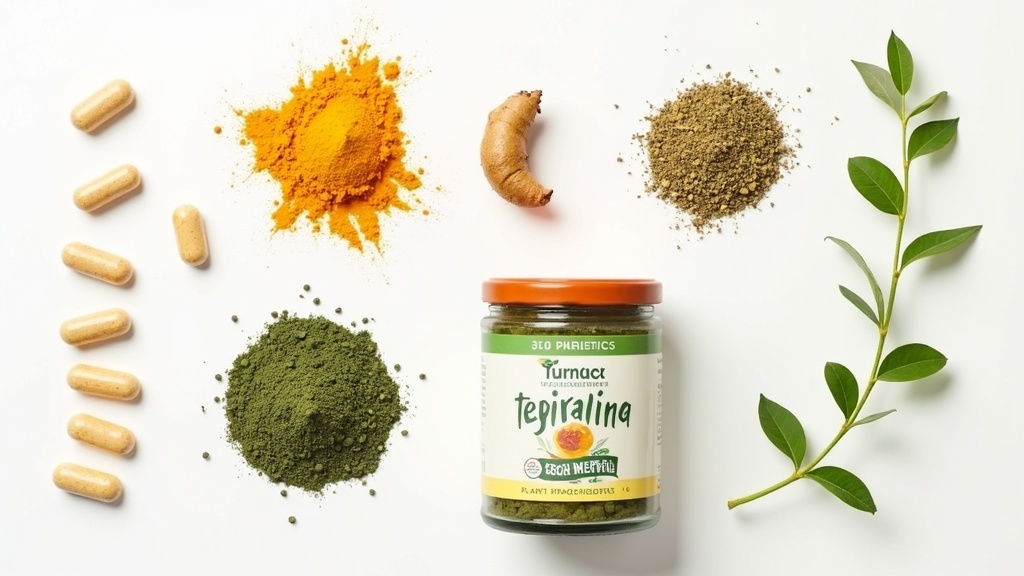
Organic supplements have taken center stage in the wellness world. These days, it’s common to hear someone mention their favorite organic multivitamin, greens powder, or adaptogen blend. With so many options now on store shelves and online, I’ve noticed a lot of questions and mixed feelings about whether organic really makes a difference—or which supplements actually offer real benefits.
I’ve spent plenty of time researching and trying out a range of organic supplements. Talking with friends, nutritionists, and checking out health forums, some products keep surfacing in conversations. Here’s an all-in-one look at today’s trending organic supplements: what people say, the science behind them, and a few things I’ve learned along the way.
Getting to Know Organic Supplements
What Makes a Supplement Organic?
The “organic” label on supplements means all ingredients are grown without synthetic pesticides, herbicides, or chemical fertilizers. This can include herbs, vegetables, fruits, fungi, or even algae—elements found in most supplement blends. Certified organic brands also avoid artificial colors or additives in their processing. For many people, organic means peace of mind about what goes into their bodies. Still, the real health benefits beyond conventionally grown ingredients might not be major for every single supplement, but the difference in purity is often noticeable.
Popular Reasons People Go Organic
- Avoiding pesticide or chemical residues
- Reducing environmental impact
- Supporting organic farming
- Personal sensitivities to additives or contaminants
Are Organic Supplements Really Better?
This is a common question, and the answer isn’t always straightforward. Research shows that organic supplements usually carry fewer contaminants and sometimes pack slightly higher levels of certain vitamins, minerals, or plant compounds. For example, organic turmeric may deliver more curcumin compared to some nonorganic counterparts. Keep in mind, quality and purity also depend on the brand and their testing—having the organic label alone isn’t a guarantee.
The Most Popular Organic Supplements Right Now
1. Organic Turmeric (Curcumin)
Organic turmeric stands out for its vibrant color and reputation as a natural solution for inflammation. The main player, curcumin, is well known for joint support, balancing the immune system, and recovery after a workout.
- People use it for: Joint pain, inflammation, and overall wellness
- How it’s typically taken: Capsules, powders, and sometimes as a tea
- Science check: Multiple studies show curcumin helps reduce inflammation and oxidative stress. Combining it with black pepper or a fat source increases absorption (source).
2. Organic Ashwagandha
Ashwagandha has roots in Ayurvedic tradition and is now a big name in stress relief supplements. Organic ashwagandha is commonly offered as capsules or powder, with roots sourced from certified farms that avoid heavy metals and unwanted contaminants seen in some regular options.
- People use it for: Stress relief, sleep support, hormone balance
- How it’s commonly taken: Capsules, tinctures, or blended in smoothies
- Science notes: Clinical studies back up ashwagandha’s ability to lower cortisol levels and help sleep (source).
3. Organic Spirulina
This bluegreen algae delivers a solid dose of protein, B vitamins, iron, and antioxidants. It’s known for boosting the immune system and recommended for people needing an easy nutrient lift. Growing spirulina organically means no synthetic fertilizers or chemicals, a major plus since algae absorb everything around them, including heavy metals.
- People use it for: Energy, immune support, and detox
- How it’s used: Powders for juices and smoothies or pressed into tablets
- Science breakdown: Studies suggest spirulina helps with cholesterol, blood pressure, and antioxidant protection (source).
4. Organic Green Tea Extract
Green tea extract, especially when standardized for EGCG, is a top pick for those supporting metabolism and heart health. The organic label means the tea leaves are free from pesticides or chemical fertilizers, which is key for anyone who drinks it daily.
- People use it for: Weight management, cardiovascular boost, and mental focus
- How to use: Capsules, tablets, or brewed into tea
- What science says: Research supports its impact on fat oxidation and healthy cholesterol (source).
5. Organic Probiotics (PlantBased Fermented Blends)
Probiotics aren’t new, but there’s growing interest in plantbased and organic strains, often delivered through fermented plants or grains. These products skip dairy and instead use organic prebiotic fibers like chicory and inulin, promoting healthy gut bacteria.
- People use it for: Digestive balance, immune health, and better absorption of nutrients
- Typical forms: Capsules, powders, or in functional drinks
- Research highlights: Probiotics can improve gut flora, lessen IBS symptoms, and support immune function (source).
Comparing Benefits: Which Organic Supplement Should You Pick?
- Anti-Inflammatory Support: Organic turmeric is a go-to for those with joint pain or chronic inflammation.
- Stress and Mood: Ashwagandha makes a difference for many people, myself included. It’s worth a try if daily stress feels overwhelming.
- Nutrient and Energy Boost: Spirulina can help add protein, iron, and antioxidants, helpful if your diet is running a bit low.
- Metabolic Support: Green tea extract is a smart pick for gentle metabolism support or to keep energy up without caffeine jitters.
- Gut Health: Organic, plantbased probiotics really shine when digestive issues or immunity are top priorities.
What Real Users Are Saying
- Turmeric: “Great for joint pain, but flavor takes some getting used to.”
- Ashwagandha: “I finally started sleeping better and feel less anxious after a couple weeks.”
- Spirulina: “Mixes well in smoothies—make sure you get a brand that tests for purity since it can taste swampy otherwise.”
- Green Tea Extract: “Gives me steady focus with no jitters.”
- Probiotics: “My digestion feels smoother, but consistency matters.”
Where to Buy & Key Tips
If you’re interested in organic supplements, check for third-party lab testing and look for certifications like USDA Organic. Many popular brands make this info easy to find on their product pages. I always look through customer reviews—they often mention freshness or whether support is responsive. Avoid products with hidden “proprietary blends” or unclear ingredient lists, and steer clear of fillers when possible.
Bottom Line: Are Organic Supplements Worth the Hype?
Organic supplements offer a cleaner option, particularly for anyone concerned about extra chemicals or how ingredients are sourced. There’s science supporting the value of the supplements covered above, but choosing a reliable brand and tracking what works best for you is key. I’ve noticed the best results when these fit into a healthy routine—eating real food, getting active, and knowing that a supplement is just one part of feeling your best. If you’re curious about giving organic supplements a try, starting with one of these top picks is a smart move.
What’s your favorite organic supplement? I’d love to hear what others are finding useful!
